Learn which Mediterranean herbs and spices are commonly used in many of Carrie's Experimental Kitchen's recipe experiments.
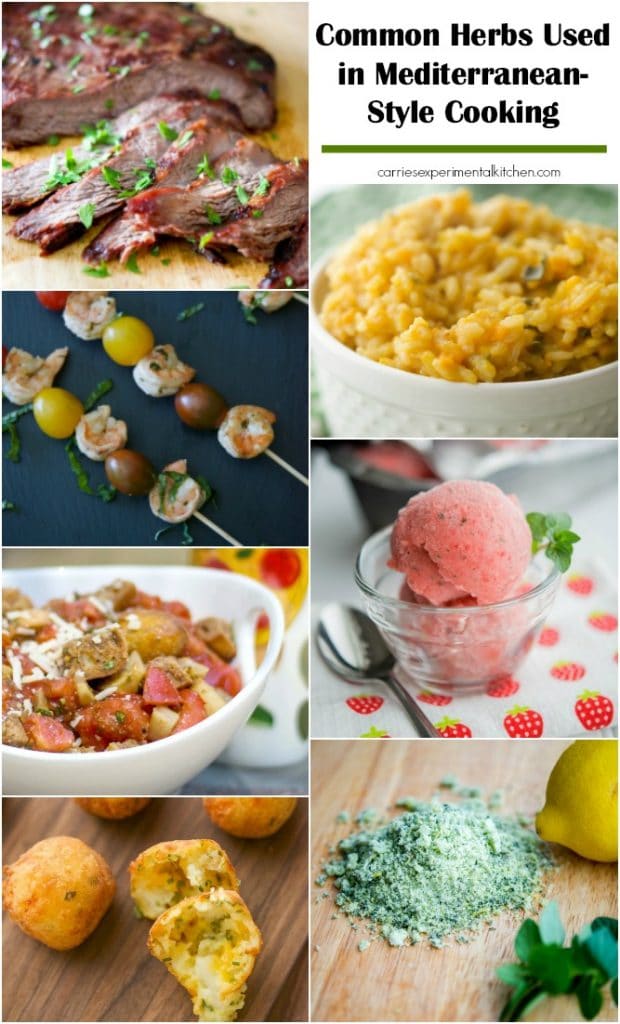
Many assume that when cooking with certain types of herbs, they are restricted to certain types
of cuisine. When in actuality, they are also quite popular in other areas of the world as well. Such is the case with many Mediterranean fresh herbs and spices.
There are many herbs which you might automatically think would be associated in this list like basil, rosemary and fennel. However, there are some herbs like ginger and cilantro, that are also used in Mediterranean-style cooking as well.
Today I'll be sharing the most commonly used fresh herbs in Mediterranean-style cooking that I like to use in many of my recipes here at Carrie's Experimental Kitchen. I've also given you a few links to recipes that I have prepared in the past using such herb.
Common Mediterranean herbs
Basil
- Originates from southern France and Italy and comes from the mint family
- Has a sweet, peppery taste
- Can be used in a variety of dishes like pesto, sauces, soups, salads, marinades and dressings
- Basil blends well with other herbs and spices such as parsley, rosemary, oregano, thyme, sage, and saffron
- Try Lemon Basil Popovers, Garlic Basil Butter, Tortellini with Garlic, Brown Butter and Basil, Lemon Basil Grilled Shrimp, Mozzarella Basil Potato Frittersand Lemon Basil Green Beans
Cilantro
- Cilantro has been found in both Southern Europe and the Middle/Far East
- This herb comes from the leaf of the coriander plant
- It has a strong flavor that tastes of a combination of sage and lemon
- Cilantro can be used in Mediterranean stews, soups, curries, vegetables, salads, relishes and tomato-based sauces
- Try Lime & Cilantro Roasted Cauliflower, Cilantro Lime Grilled Pork Chops, Tomato, Cucumber & Avocado Salad
Visit the recipe index to search for more recipes by category.
Chives
- Chives belong to the onion family, but are milder and more delicate in flavor than onions
- They are native to Europe, Asia and North America
- Chives go well in salads and dressings, yogurt, egg, and pasta dishes, casseroles, baked potatoes, soups and sauces
- Chives also have insect repelling properties that can be used in the garden to control pests
- Try Low Fat Ranch Dressing, Mediterranean Turkey Sliders with Horseradish Dressing, Sour Cream & Chive Yukon Gold Mashed Potatoes, Cheddar & Chive Potato Puffs
Fennel
- Fennel originated by the shores of the Mediterranean
- It has a sweet, mild licorice taste and is commonly used with meat, vegetable, and grain dishes, soups, tomato sauces, cakes, pastries, breads, beverages, salads and dressings
- Try Roasted Fennel & Heirloom Tomato Panzanella Salad, Roasted Fennel & 3 Bean Chili, Fennel & Asiago Cheese Stuffed Mushrooms, Classic Herb Stuffing with Fennel
Garlic
- Garlic is a staple in Mediterranean cuisine and is a versatile seasoning that complements most any savory dish
- It originated in Asia and has been used for over 7,000 years for cooking and medicinal purposes
- Garlic is widely used in Mediterranean sauces, stews, soups, salad dressings, casseroles, breads, and grain dishes
- Try Fried Artichoke Hearts with Roasted Garlic Aioli,Sautéed Fresh Spinach & Garlic, Roasted Garlic Mashed Cauliflower, Slow Cooker Garlic and Rosemary Pork Shoulder
Ginger
- Mediterranean cooks use ginger, which originated in southeast Asia, to enhance both sweet and savory dishes like stir fries, sauces, cakes and cookies, and puddings
- Try Lemon Ginger Grilled Pork Chops, Green Bean & Tomato Salad with Ginger Wasabi Vinaigrette, Creamy Asian Root Vegetable Soup, Soy-Ginger Grilled Flank Steak, Sesame Ginger Sautéed Haricot Verts
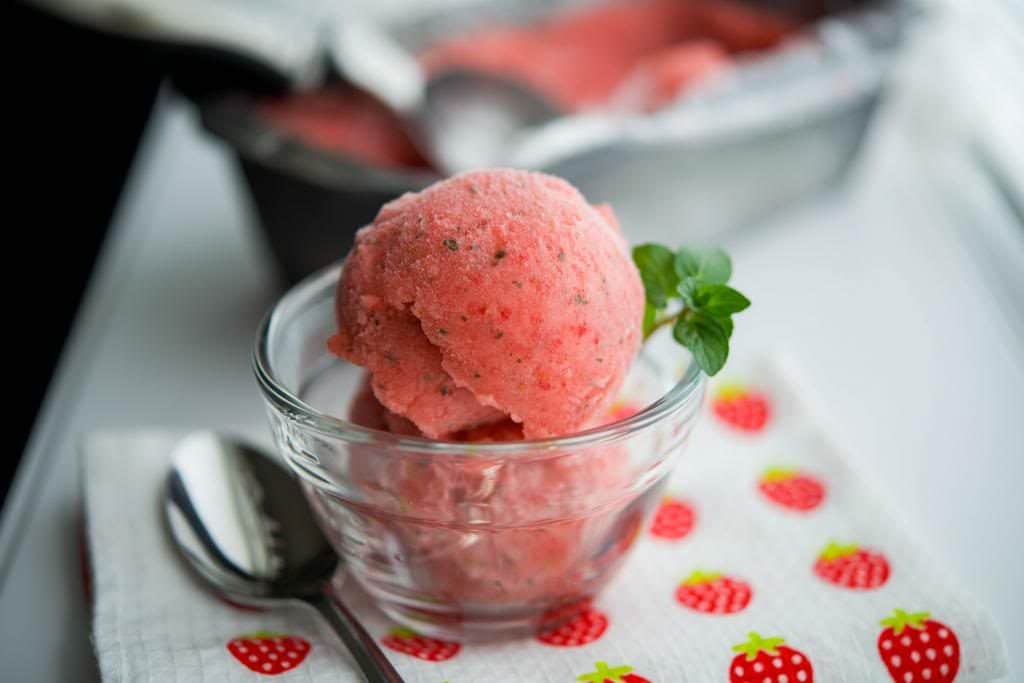
Mint
- Mint is used in eastern Mediterranean cooking
- According to Greek mythology, the word mint comes from Minthe; a Greek nymph who was loved by Pluto, and was changed into a plant
- Peppermint is often used to flavor candy and desserts, while spearmint is often found in teas, sauces, and jellies that are served with meat, as well as vegetables, like potatoes and carrots.
- Mint is also added to salads, stews, soups and stuffings
- Try Fettuccine with Pink Grapefruit & Mint, Spinach, Pear & Mint Smoothie, Blackberry Mint Green Tea, Strawberry Chocolate Mint Sorbet
Onion
- Onion's are extremely popular to Mediterranean cuisine, as it enhances other vegetables, soups, sauces, seafood and meat dishes, grains and legumes
- There are hundreds of varieties of onions including the large, round Spanish onion, the red-skinned Italian onion, smaller, yellow or white onions, pearl onions and green onions; all of which vary in appearance and potency
- Try Italian Onions, Vanilla Almond Onion Straws, French Onion Soup
Sign up for my weekly newsletter and receive a FREE eBook!
Oregano
- Oregano grows wild throughout the Mediterranean and is a cooking staple
- It is related to marjoram, but has a stronger flavor
- You'll find oregano in French, Greek and Italian dishes, especially in tomato-based recipes
- Mediterranean oregano is also used to marinate meats and seafood before grilling and to season olives, cheeses, vegetables (especially eggplant), egg dishes, grains, breads, casseroles, meats, poultry, and salads
- Oregano also pairs well with other spices, like basil, garlic, thyme, and parsley
- Try Butter Roasted Carrots & Parsnips with Oregano, Mediterranean Broccoflower Salad, Crock Pot Greek Mashed Potatoes, Greek Style Sausage & Chick Peas, DIY Oregano-Lemon Salt, Skillet Greek Chicken & Rice
Parsley
- Parsley originated in Southern Europe and is used in sauces, soups, meat marinades, dressings, salads, casseroles, stuffings, omelets, soft cheeses, and potato dishes
- The two main types are curly and flat-leaf parsley, both rich in vitamins and minerals
- Try Gremolata Chicken Skewers, Gremolata Roasted Potatoes, Gremolata Roasted Turkey Breast
Rosemary
- Rosemary is a native Mediterranean spice and it's needle-like leaf has a sweet, woodsy flavor
- Italian cooks use it frequently in marinades and with roasted and grilled foods, like vegetables, poultry, and seafood, but it also works well in stews, sauces, dressings and focaccia
- This is also my favorite go-to spice
- Try Rosemary Grilled Pork Skewers, Rosemary Chianti Cheese Ball, Rosemary & Goat Cheese Mac and Cheese, Slow Cooker Garlic and Rosemary Pork Shoulder, Horseradish, Garlic & Rosemary Encrusted Roast Beef, Parmesan & Rosemary Whipped Potatoes
Sage
- Sage is a Mediterranean spice in the mint family and has a strong, slightly bitter-sweet taste
- Mediterranean cooks use it to flavor a variety of foods, including meats, seafood, poultry, stuffings, soups, breads, bean salads and dressings
- Try Portobello Mushroom, Zucchini and Sage Risotto, Carrot & Sage Soup, Chicken in a White Wine Sage Sauce, Garlic and Sage Roasted Boneless Turkey Breast, Sweet Potato and Sage Risotto
Saffron
- Originated in Crete, Greece
- According to Wikipedia, saffron has been described as tasting like"metallic honey with grassy notes" and contributes to that yellow-orange hue in foods
- Try Saffron Roasted Cauliflower Quinoa Salad, Roasted Garden Vegetable Saffron Baked Risotto,
Sea Salt
- Sea salt is found in Mediterranean breads, pickled vegetables, dressings, and with cheeses, meats and grains or any savory dish and a few sweet ones as well
- Sea salt enhances other flavors, seasons on its own, and provides a necessary nutrient
- Try Grilled Chicken in a Lime Sea Salt Brine, Sea Salt SmashedPotatoes, Sea Salt Roasted Green Beans,
Thyme
- Thyme originates in the Mediterranean, and has an herbal, minty flavor and scent
- It's used in many savory recipes and especially with tomatoes and in slow-cooked dishes like soups and sauces
- Try Lemon Thyme Stuffed Zucchini, Lemon Thyme Pesto, Clemen-Thyme Baked Chicken Cutlets, Thyme & Butter Roasted Carrots
If you would like to try some other common herbs used in Mediterranean cooking other than the ones listed here, try these: Bay Leaves, Chervil, Cinnamon, Cloves, Coriander, Cumin, Fenugreek, Marjoram, Nutmeg, and Turmeric.
Are you considering following a Mediterranean diet? Read my post entitled Should I Eat a Mediterranean Diet? for helpful tips and information!

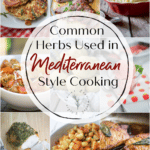
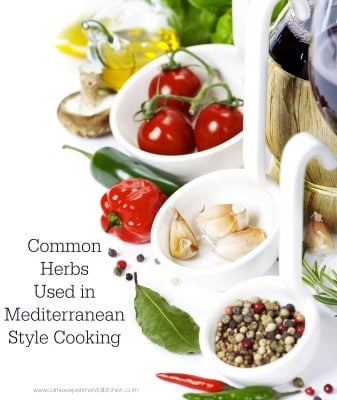
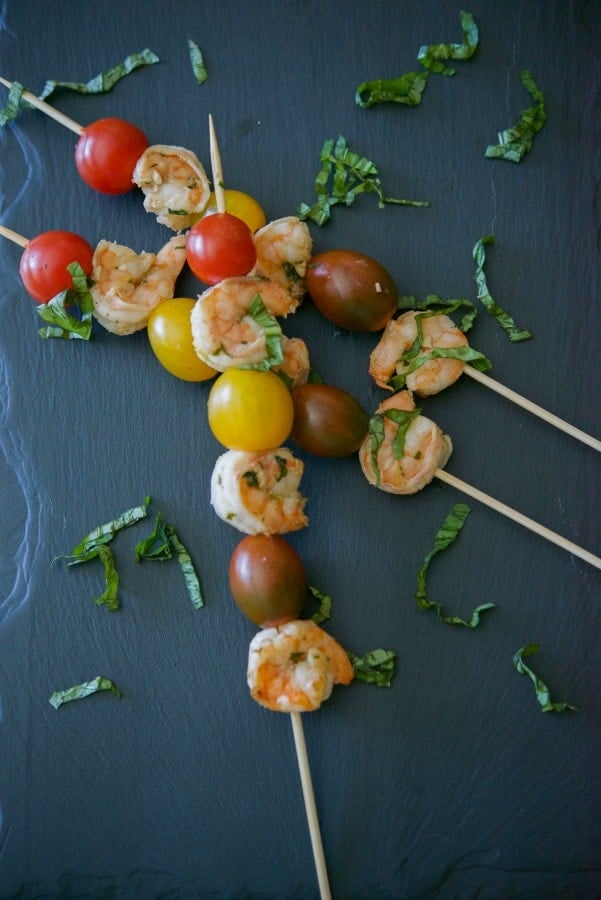
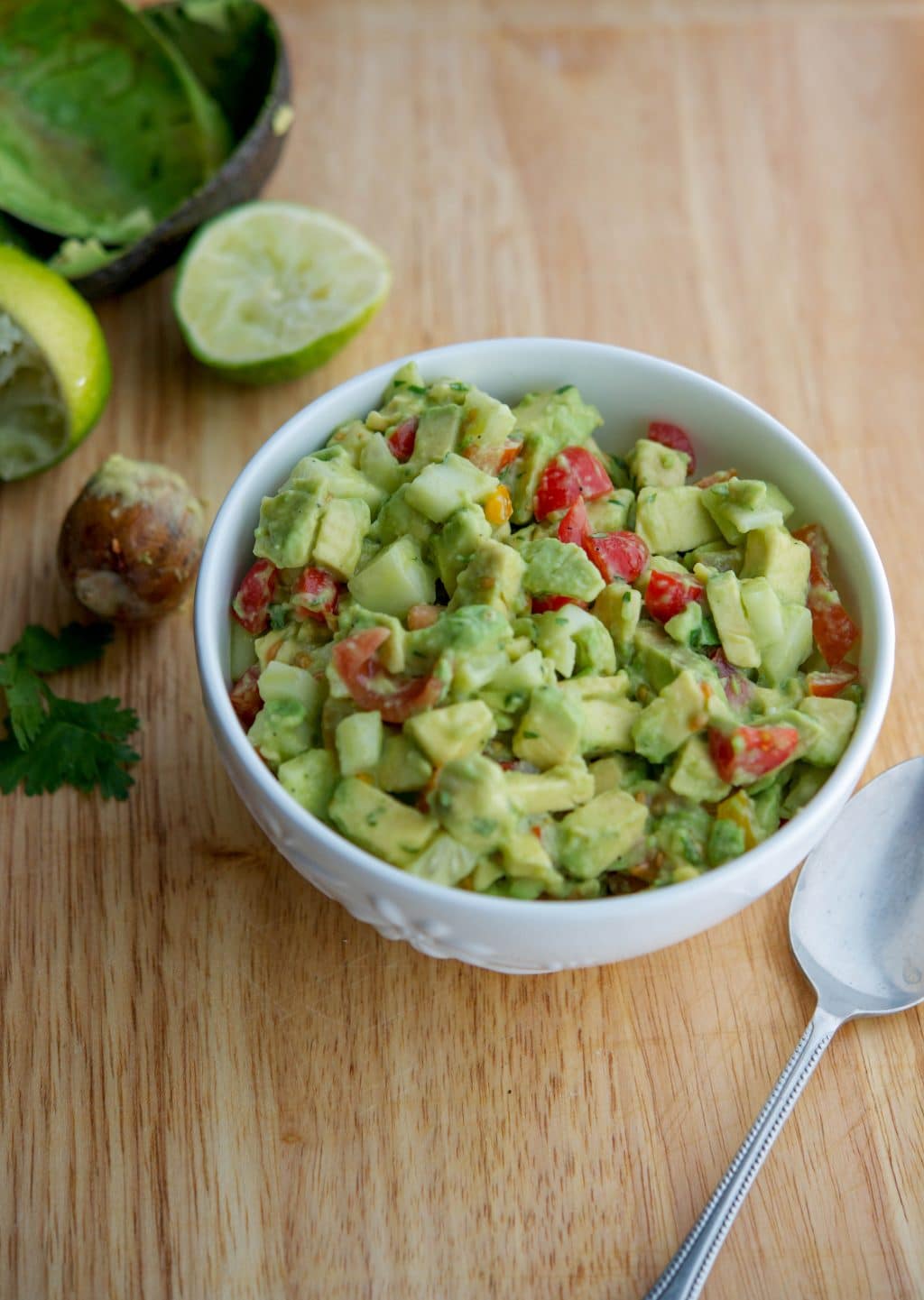
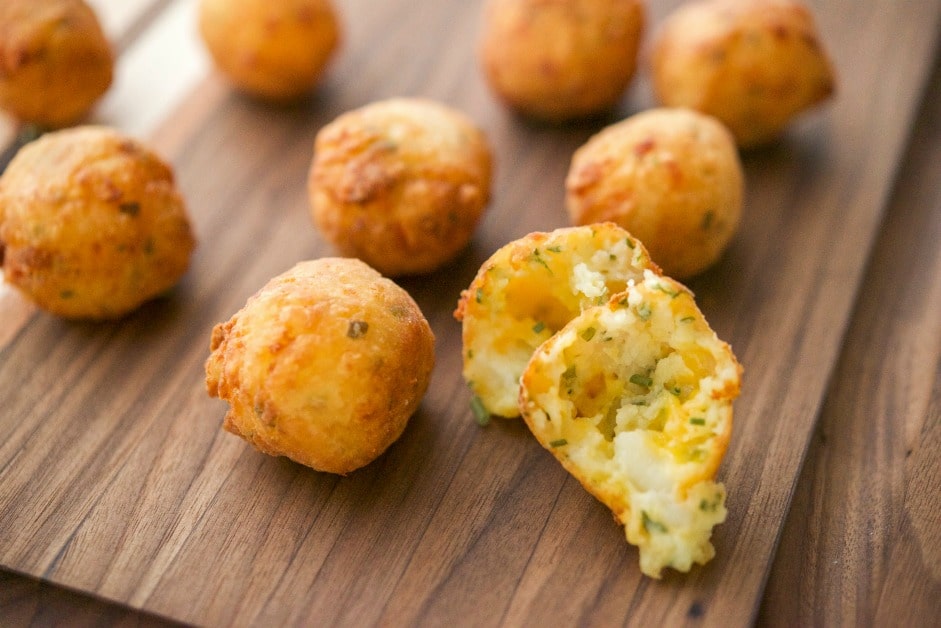
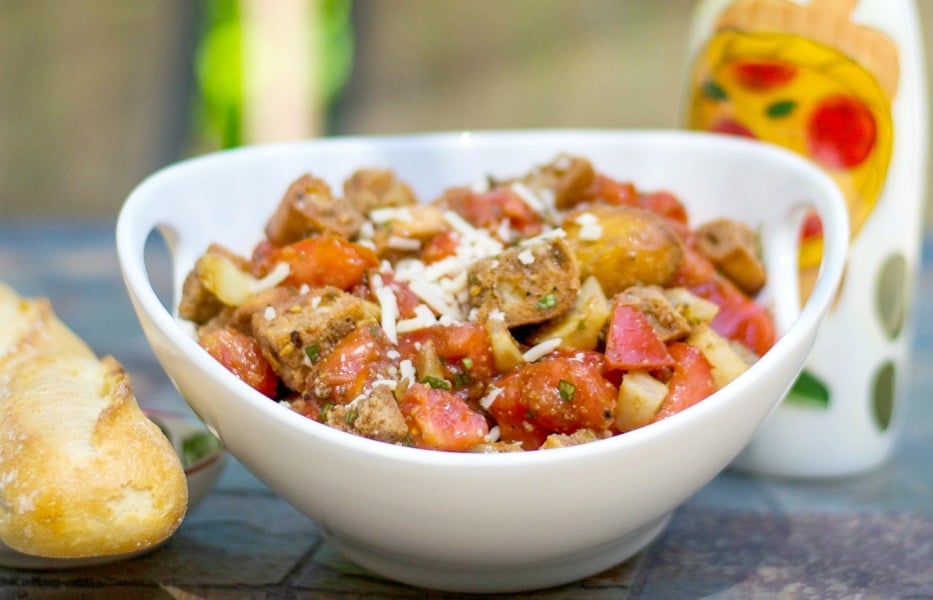
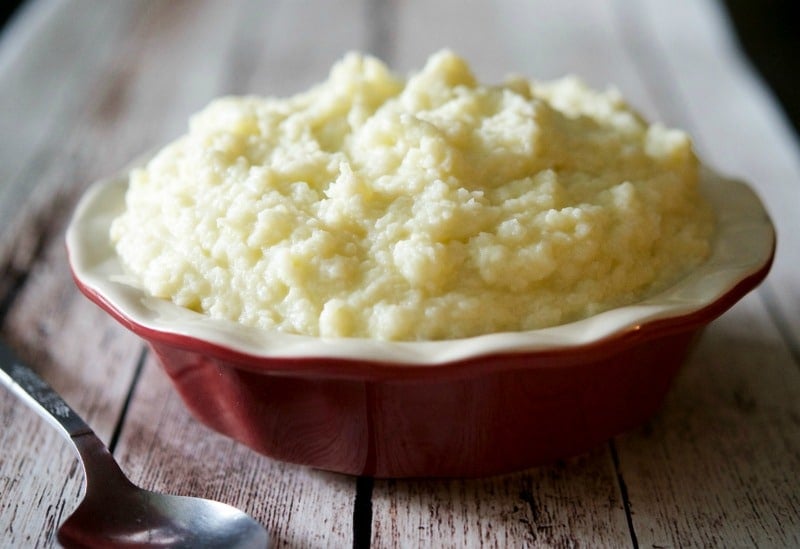
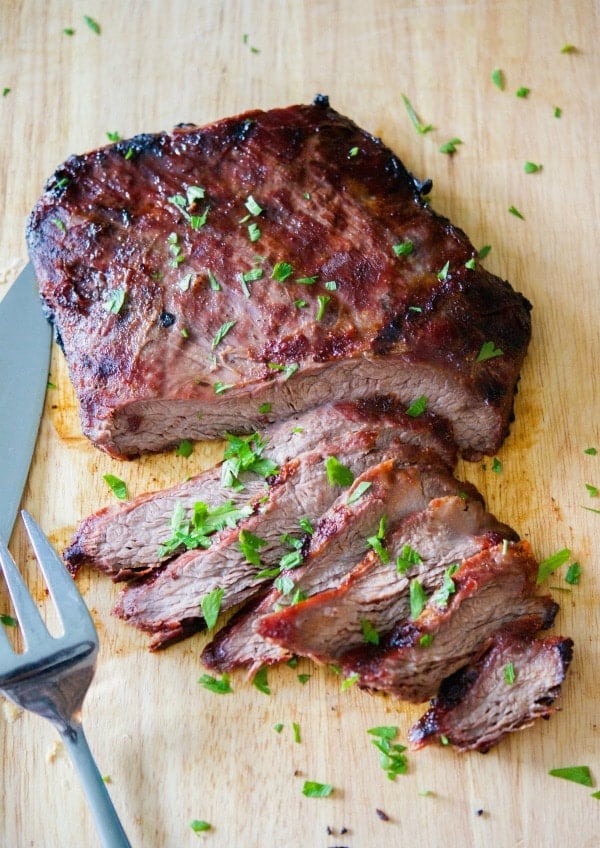
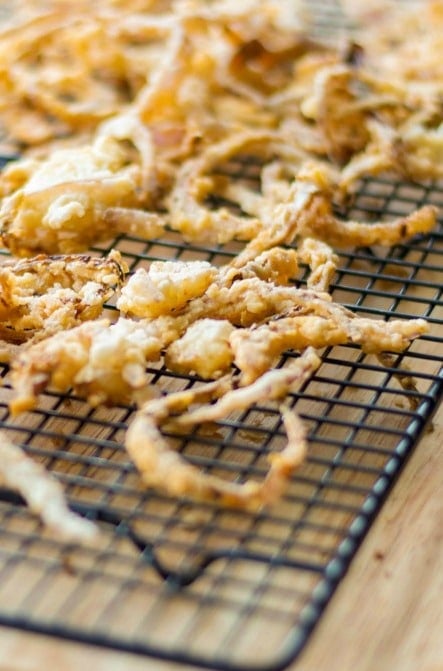
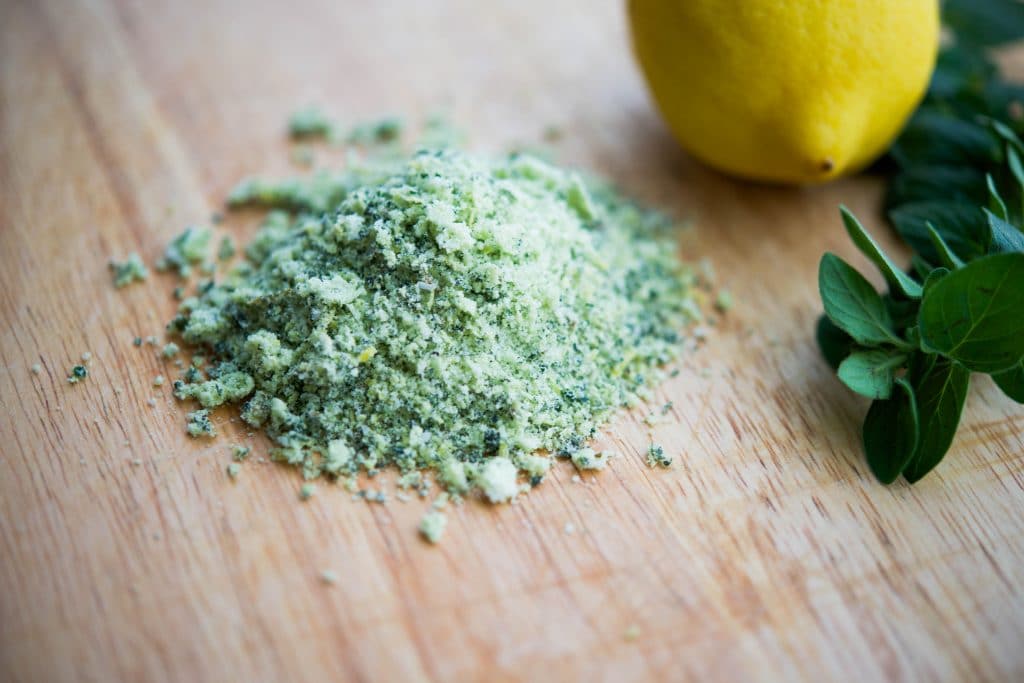
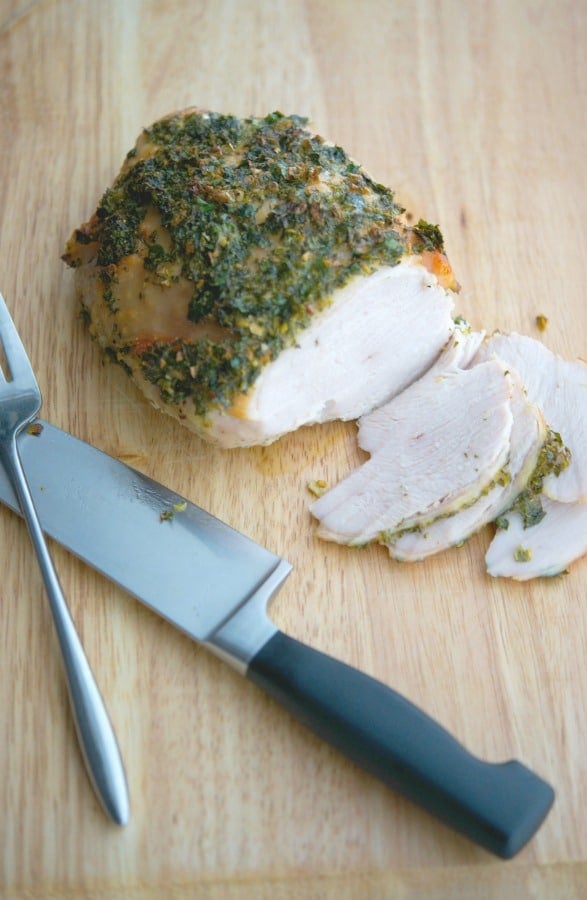
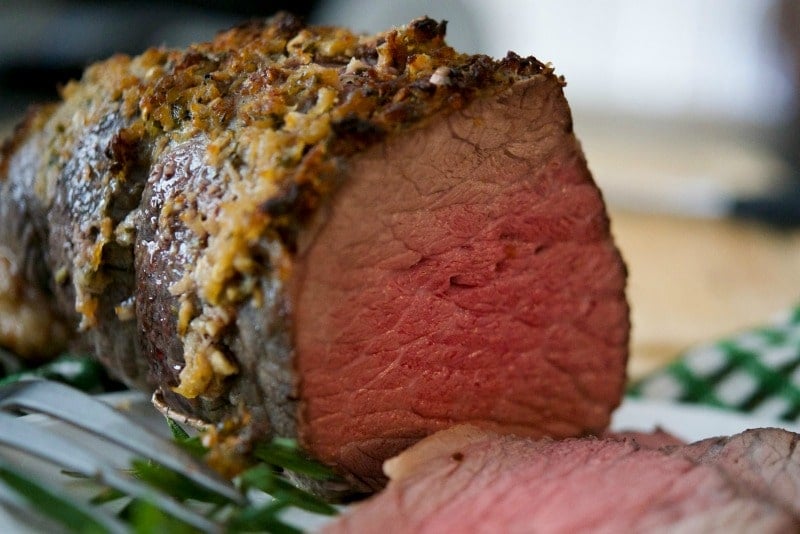
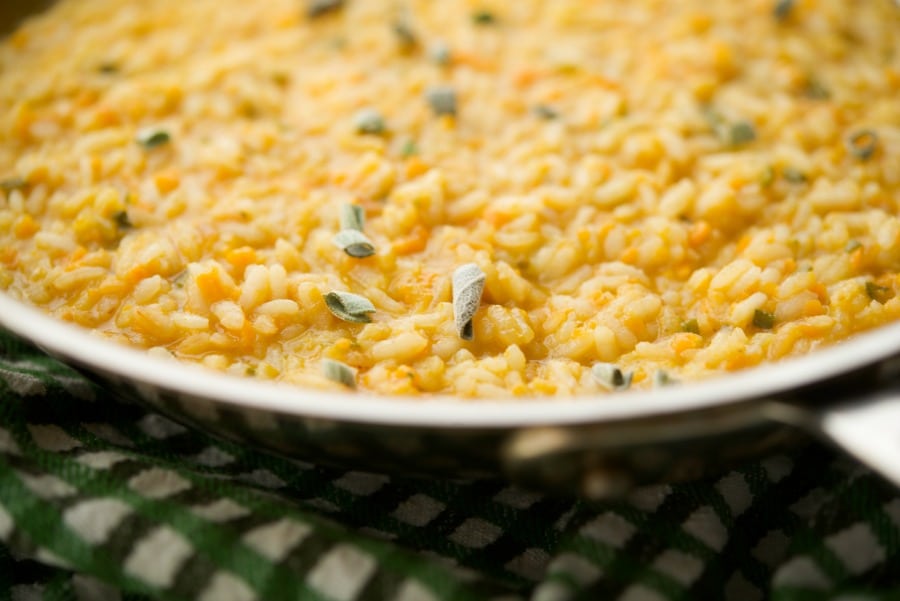
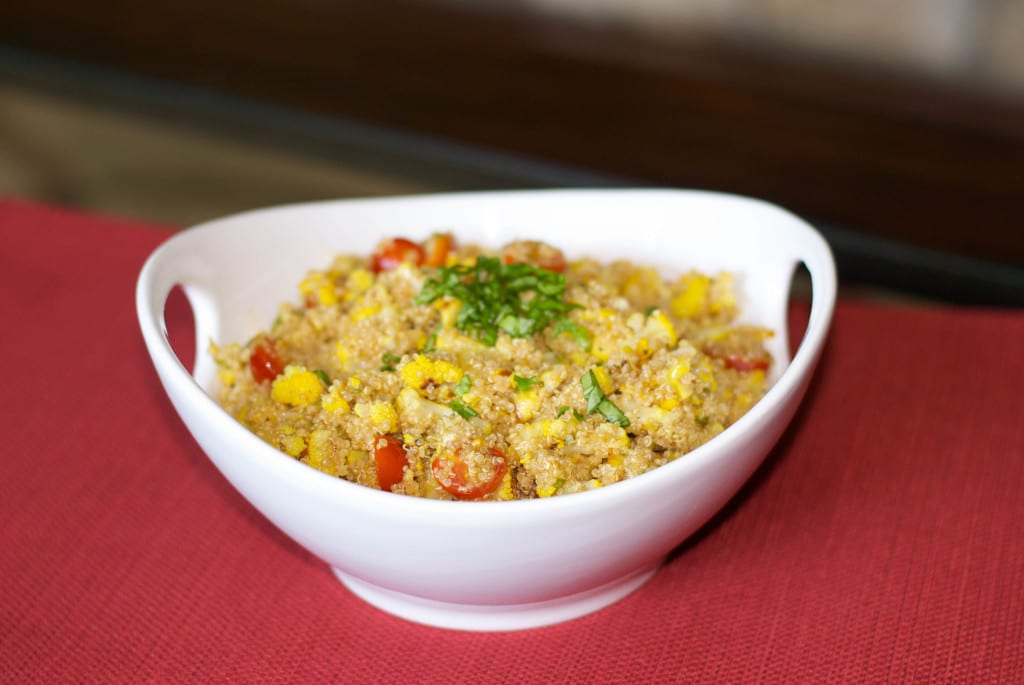
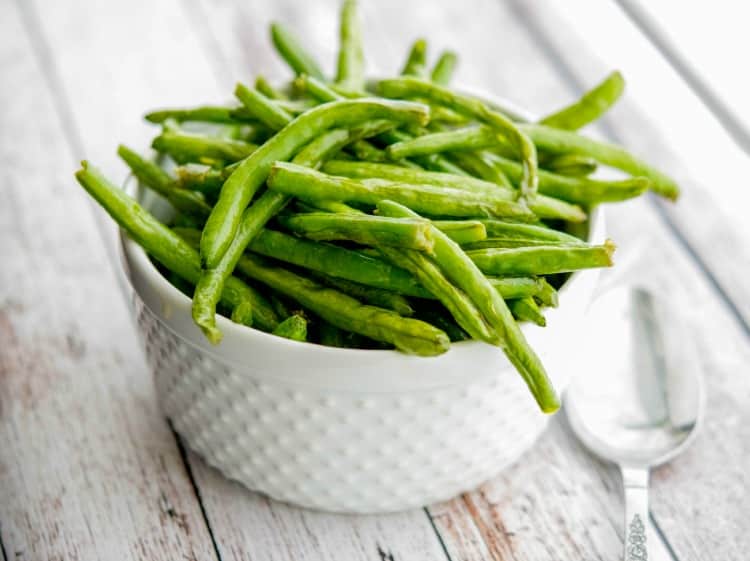
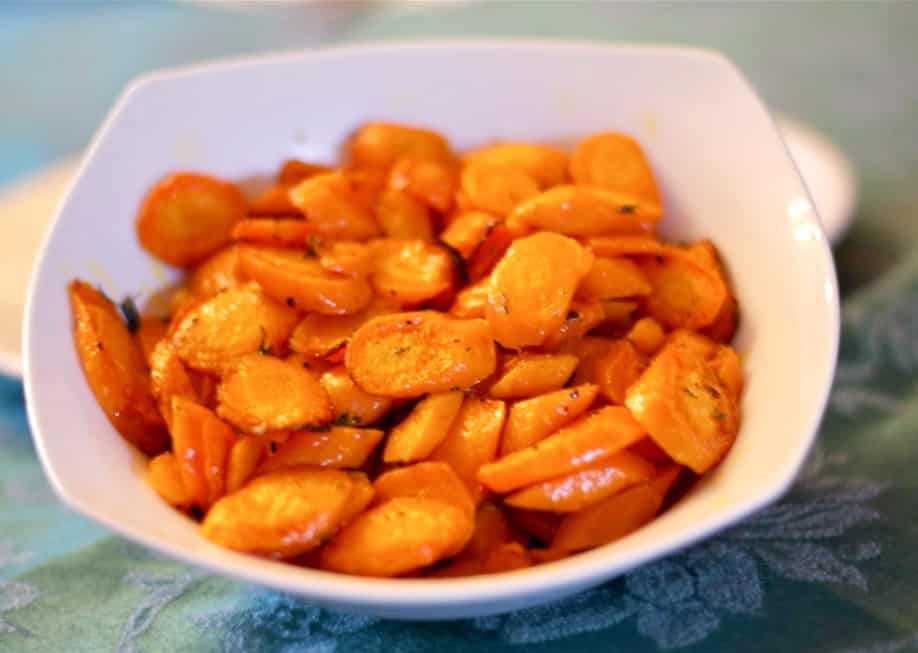
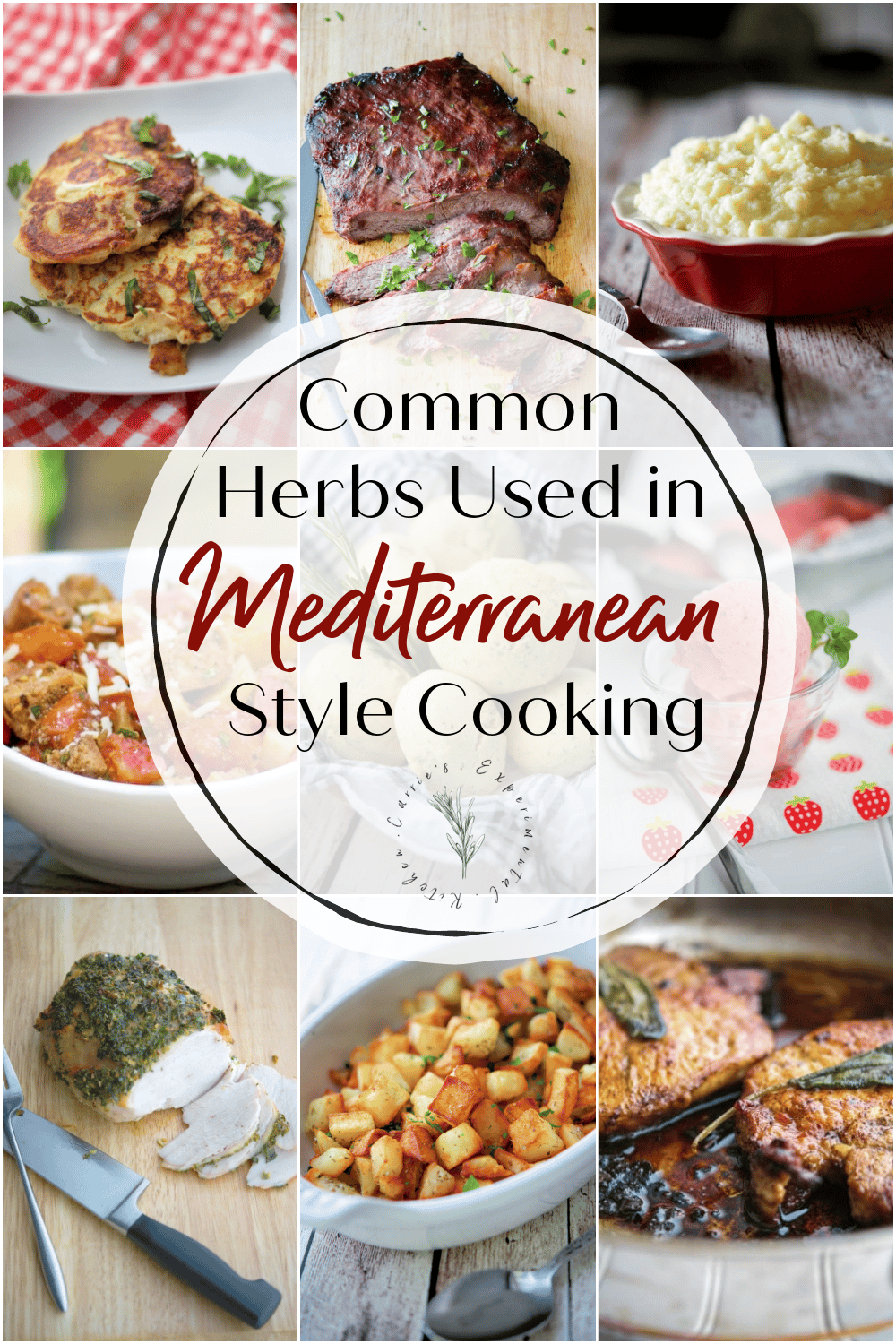

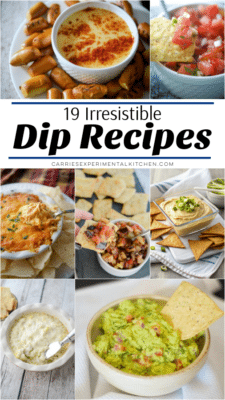
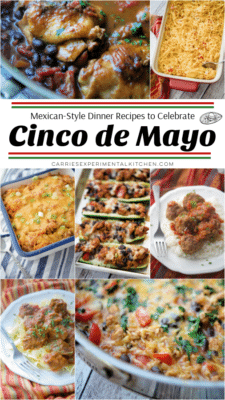

Ebon Blackforest says
I am very allergic to Sage. Does anyone have a good substitute for flavouring? I can't even touch/be near sage without having trouble breathing. Also, Cinnamon, too. I'm allergic. I've tried substituting nutmeg on that one, but any suggestions?
Carrie's Experimental Kitchen says
Is Marjoram ok? It's a little similar, but has more of a pine/citrus flavor.
Sasha says
This is a great list of herbs here. I'm such a fan of Mediterranean-style cooking, probably because my father was born and raised in Sicilia and I grew up on my parents cooking using only the finest ingredients. I love how you've included a bit of background information about each herb, most of which I never knew!
Thanks again for the great share. Keep the excellent content coming.
- Sasha from DMT Culinary Sharpeners, the world's leading knife sharpening products.
Carrie's Experimental Kitchen says
Thank you Sasha, I'm glad you stopped by to let me know you enjoyed the post.
Mia says
Great post. Thank you.
Carrie Farias says
Thanks for stopping by Mia! 🙂
Kirsten Madaus says
This is a comprehensive list, Carrie! I'm missing ginger, oregano, sage, saffron (oh and of course salt) but the rest are growing, or soon will be, in my back yard/side yard/front yard gardens.
And I found fall-blooming crocus in the woods last year, so perhaps I can source local saffron . . . ?
Thanks!
Carrie Farias says
You're welcome!